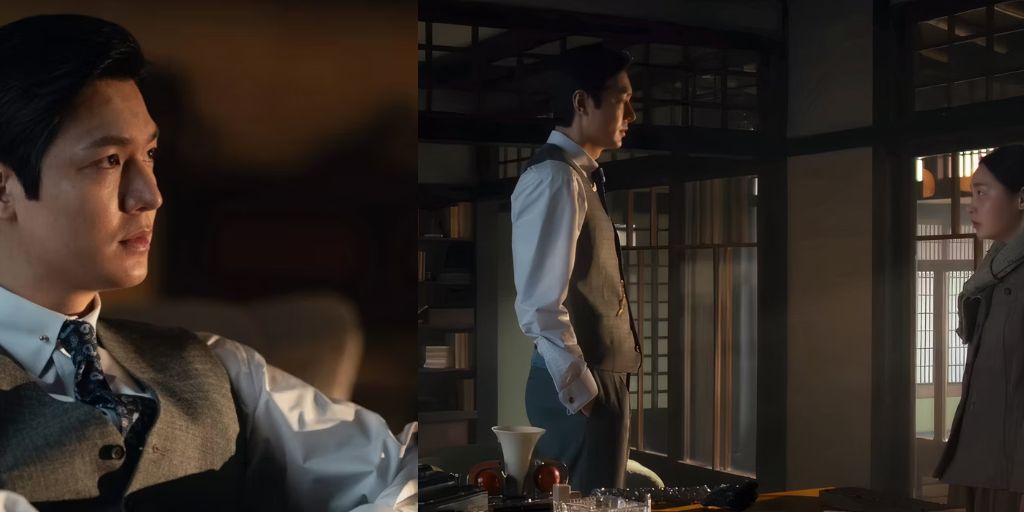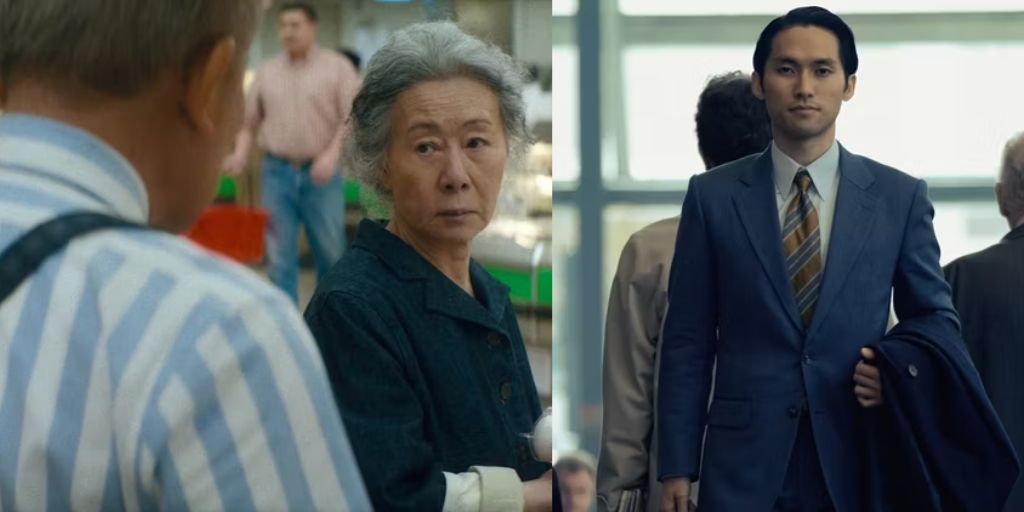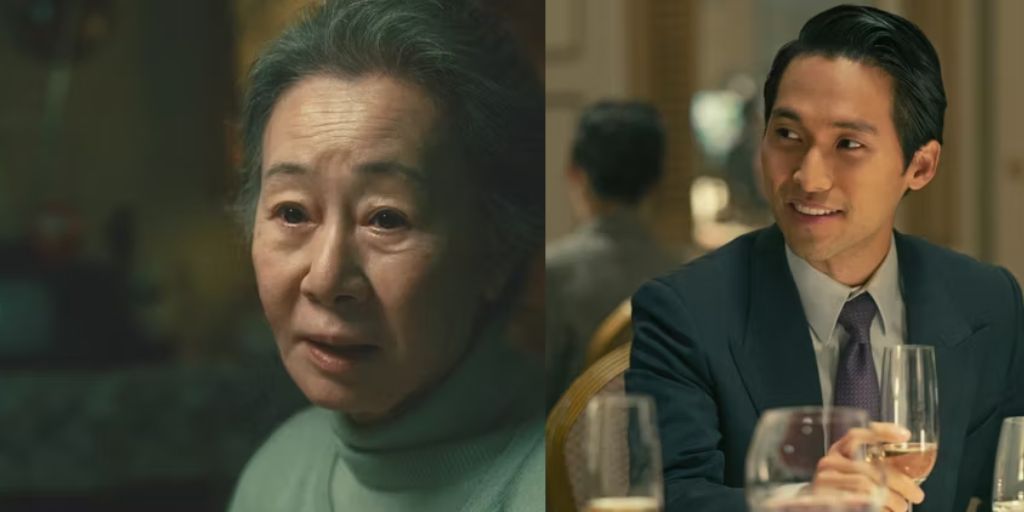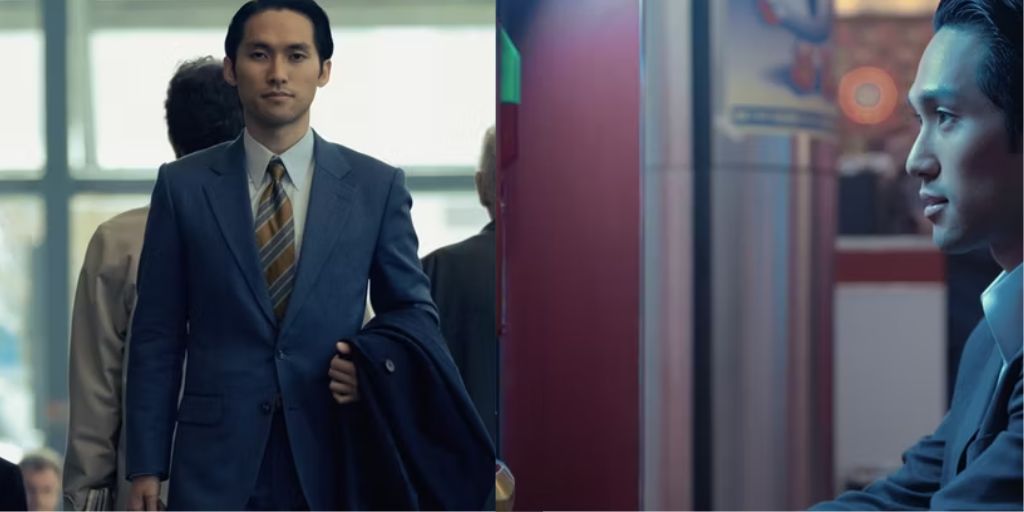Season 1 of Pachinko, which premiered in 2022, introduced viewers to characters who quickly became memorable. The series follows Sunja, played by Minha Kim in her younger years and by Oscar winner Youn Yuh-jung in her older years. Her grandson, Solomon, is portrayed by Jin Ha.
Both Sunja and Solomon, being Koreans living in Japan, encounter persistent discrimination solely due to their heritage. Despite facing numerous challenges, they uphold their dignity and strive to improve their family’s circumstances.
The initial eight episodes of Pachinko tell a compelling multi-generational story, featuring stunning visuals and showing deep themes of identity and belonging.
Two years after its debut, Pachinko still enchants audiences with its grand setting and intricate narrative. The series effectively shifts between the perspectives of Sunja and Solomon, moving between 1945 and 1989.
This narrative technique helps illustrate how Sunja’s early choices have impacted her family’s situation decades later. Sunja’s commitment to her children plays a crucial role in enabling Solomon to pursue his dreams, emphasizing the profound debt owed to previous generations.
The War Continues in ‘Pachinko’ Season 2
Season 2 of Pachinko opens in 1945 at a train station in Osaka. Koh Hansu, portrayed by Lee Minho, meets with an employee who holds an object that initially appears to be a large rock.
This object, later identified as tungsten, becomes significant in the episode. Tungsten is a crucial material used in the production of war equipment, and Hansu’s involvement in sourcing it for Japanese troops is central to the plot.
The episode also features teenage Noa (played by Kim Kang-hoon) and young Mozasu (Eunseong Kwon) running through a market in Osaka. The aftermath of the war is visible in the struggling neighborhood. Sunja, who is trying to support her family after her husband Isak’s arrest, sells kimchi as their sole source of income.
During a tense moment, American planes fly overhead, dropping leaflets that urge the Japanese people to ask their emperor to end the war. The leaflets initially cause panic among market-goers, but it soon becomes clear that they are not a threat.

Throughout its run, Pachinko vividly portrays the discrimination Koreans faced in Japan. The young brothers Noa and Mozasu experience racism in their school. Mozasu, despite being young, bravely stands up for his Korean food and earns respect from his peers, even though he is punished by his teacher.
In contrast, Noa endures the ridicule quietly, focusing on his book and avoiding confrontation. A conversation with a church member reveals the stress and violence prevalent in homes and streets due to the war. The young actors playing Mozasu and Noa deliver exceptional performances, showing how discrimination affects their lives without falling into typical child actor stereotypes.
The impact of the war is evident in various aspects of life, including military drills and personal struggles. Sunja and her children participate in drills where they practice using spears on straw dummies representing enemies. Sunja also encounters her friend Jiyun (Jeong Sori), who has been physically abused, illustrating the war’s effects on personal relationships.
Sunja discusses her difficulties, including her husband’s long absence and the lack of recent communication from her mother. Jiyun suggests selling rice wine illegally on the black market to support their families, but Sunja hesitates due to the risk of arrest.
Kyunghee (Jung Eun-chae), Sunja’s sister-in-law, convinces her to take the risk by highlighting the severe hunger faced by the children.
Sunja Is Willing To Sacrifice Everything for Family in ‘Pachinko’ Season 2’s Premiere
Initially, Sunja is reluctant to engage in illegal activities, fearing the risks could leave her children without a parent. However, Kyunghee’s reminder of the dire situation persuades Sunja to assist Jiyun.
After they prepare the rice wine, Sunja heads to the black market to sell it, despite the distressing sounds of Jiyun’s husband beating her. This scene underscores the harsh realities Sunja faces and the lengths she is willing to go to provide for her family.
Noa also makes significant sacrifices. Although he excels academically and is encouraged to take an entrance exam for higher education, he chooses to stay in the city to be present for his father’s return. His teacher, who secretly hides his Korean identity to avoid discrimination, provides Noa with an entrance exam guide, further emphasizing the challenges faced by Koreans during this period.
Kyunghee later discovers Jiyun in a state of panic, revealing that the black market has been raided and Sunja has been arrested.

Despite the fear and uncertainty, Sunja is released without punishment. Mr. Kim is waiting for her and takes her to a mansion where Hansu reveals he has been closely monitoring her actions. Hansu discloses that the tungsten is used in war materials and that he has been supplying it to the Japanese military.
Earlier, Hansu had overheard a conversation about an impending bomb drop on Japan and warned Sunja. He offers her and her family a safe refuge in the countryside, but Sunja refuses, choosing to remain with her husband Isak. This refusal highlights Sunja’s deep commitment to her family and her determination to stay by her husband’s side despite the danger.
The Struggle Is Real for Solomon in ‘Pachinko’ Season 2, Episode 1
The narrative then shifts to 1989 Tokyo, where Solomon is grappling with the aftermath of a failed business deal. He seeks new funding but faces rejection from investors. A friend, Tetsuya (Ryotaro Sugimoto), initially agrees to invest but withdraws due to threats from Katsu Abe (Yoshio Maki), who accuses Solomon of deceit.
Solomon, frustrated and desperate, has a tense encounter with a bakery clerk who insults Sunja because of her Korean heritage. Despite Sunja’s attempts to calm the situation, Solomon’s anger erupts, causing a public confrontation.
After leaving the bakery, Solomon tears up a check from his father Mozasu and vents his frustration to Sunja. He feels overwhelmed by his family’s past sacrifices and the weight of their struggles. The episode ends with Solomon confronting Abe-san at an award ceremony, making it clear that he will not be intimidated or threatened.
The episode contrasts Sunja’s sacrifices for basic necessities with Solomon’s privileged life, highlighting the generational differences. Sunja’s willingness to risk everything for food contrasts sharply with Solomon’s access to resources, emphasizing the impact of their different experiences. The juxtaposition of Sunja’s hardships with Solomon’s struggles provides a poignant detail of family and sacrifice.
As Season 2 progresses, Pachinko continues to go into the complexities of family dynamics and the enduring impact of historical events on personal lives. The series skillfully portrays the emotional and physical toll of discrimination and war, while also celebrating the resilience and determination of its characters.
The generational narrative underscores the profound connections between past and present, illustrating how the sacrifices of one generation shape the opportunities and struggles of the next.
The show’s rich storytelling and compelling character development make it a powerful scheme of the human spirit and the enduring quest for identity and belonging. With each episode, Pachinko deepens its examination of these themes, offering viewers a moving and thought-provoking experience.

Season 2 of Pachinko presents a vivid depiction of sacrifice and perseverance over generations. The show shifts between 1945 and 1989, showcasing the ongoing difficulties faced by Koreans in Japan and how earlier choices affect later generations.
Its powerful storytelling and character depth reveal the themes of family, identity, and endurance. The contrast between Sunja’s wartime struggles and Solomon’s contemporary issues highlights the lasting impact of past challenges. With each episode, Pachinko enriches its narrative and emotional depth, drawing viewers in with its moving portrayal of adversity and resilience. New episodes of Pachinko Season 2 premiere Fridays on Apple TV+.





